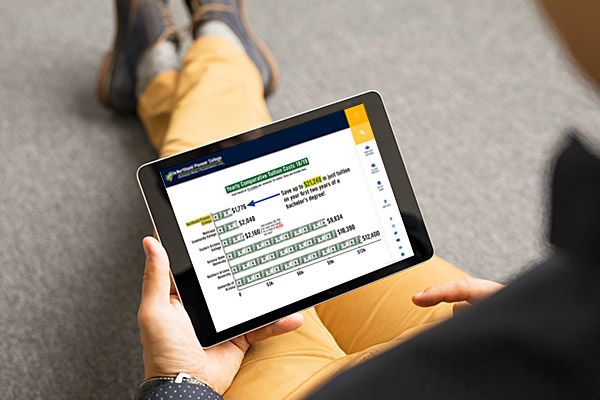Procurement Procedure
Procedure # 2335
|
Section: 2335 Procurement |
Last Review Date: 7/1/2020 |
|
Responsible Area: Procurement |
Effective Date: ASAP |
|
Policy/policies the procedure is based on: Procedure 2335 | Northland Pioneer College, Arizona (npc.edu) |
Procedures that may be impacted by revisions: None |
|
Revision History: Unsure |
|
1.0 Scope
This procedure applies to all of Northland Pioneer College all who make purchases for the College.
2.0 Purpose
This procedure provides basic guidance for procurement situations. For any situation that is unique or not addressed herein please contact the Procurement Manager for additional guidance.
3.0 Definitions
3.1 Aggregate Purchases - the total dollar amount during a fiscal year of items of a like nature, and function.
3.2 Budget Manager - Individuals appointed to evaluate the financial needs of their department, develop budget and program strategies and bear the financial responsibility for their assigned area.
3.3 Requisition - The request for goods or services made by an employee to the person or department in an organization that is responsible for purchasing.
3.4 Purchase order - The purchase order is the official document issued by the Procurement Department committing to pay the contractor for the sale of specific products or services to be delivered in the future. Each purchase order has a unique number associated with it that helps both buyer and seller track delivery and payment.
3.5 FOB - Free on board indicates whether the seller or the buyer is liable for goods that are damaged or destroyed during shipping. When used with an identified physical location, the designation determines which party has responsibility for the payment of the freight charges and at what point title for the shipment passes from the seller to the buyer.
3.6 Contractor - a person or company that enters into a contract to provide materials or labor to perform a service.
4.0 Procedure
4.1 Introduction
Pursuant to Northland Pioneer College (NPC) District Governing Board (DGB) Policy 1932, this Procurement procedure substantially follows the Arizona State Procurement Code (A.R.S. §14-2501). This procedure provides basic guidance for procurement situations. For any situation that is unique or not addressed herein please contact the Procurement Manager for additional guidance.
4.2 General Information
a) Purchases made without a purchase order - Purchases made from any contractor within the fiscal year totaling less than $1,500 do not require competitive procurement or a purchase order. These are limited to non-contracted and non-aggregating items not eligible for open purchase orders. Additionally, in order to maintain efficiency, these vendors should be an existing contractor in the procurement system.
b) Purpose - The purpose of a procurement system is to identify the goods and services required for NPC operations and select and procure goods and services according to “best value.” The Procurement Department is required to ensure the most responsible supply source providing the best value to NPC is selected. All purchases, irrespective of the sources of funding, are governed by this procedure. Disagreement related to the application of this procedure will be resolved at the lowest possible level. Issues that cannot be resolved at this level will be addressed by the President and the Executive Team. Determination of “best value” is based on facts and a review of the submitted quotes, proposals or bids, considering the following listed factors:
i. purchase price
ii. reputation of the contractor and of the contractor’s goods or services
iii. quality of the contractor’s good or services
iv. extent to which the goods or services meet NPC’s needs (delivery dates, schedules, etc.)
v. Contractor’s documented performance history with NPC
vi. total long-term cost to NPC of acquiring the contractor’s goods or services
c) Centralized Procurement - NPC subscribes primarily to centralized procurement. This is designed to monitor, standardize, and maximize the use of purchase contracts and agreements that are available to NPC as well as to extend fiscal control over the expenditure of funds.
d) Delegation of Procurement Authority - The Governing Board and President empower the Chief Financial Officer and procurement staff to commit NPC to procurement of equipment, supplies, and services under $50,000.
e) Purchase Limits - Procurement transactions and the rules that govern how they are managed are based upon fiscal year aggregate annual dollar amount and type of purchase. Projects or purchases of like items may NOT be divided or sequenced into separate projects or purchases in order to avoid the limits. The limits are as follows (except for grant purchases which are subject to grant guidelines – refer to section 3.10):
i. Purchases of Equipment, Materials, Supplies and Services less than $10,000 - Purchases in any fiscal year up to $9,999.99 do not require competitive procurement. Additional quotes may be obtained at the discretion of the budget manager or Procurement Department.
ii. Purchases of Equipment, Materials, Supplies, and Services $10,000 to $49,999 - Three written quotes for purchases between $10,000 - $49,999.99 will be obtained. The price quotations shall be attached to the related requisition form. If three quotations cannot be obtained, documentation showing why price quotations were not obtained, shall be demonstrated. A contract with a participating procurement cooperative, contract or consortium may also be identified and attached to meet the three written quotation requirement in this section.
iii. Purchases of Equipment, Materials and Supplies, and Services, $50,000 and over - Sealed competitive bids/proposals, or cooperative procurement agreements will be utilized for all purchases of goods and services having an estimated annual aggregate cost of $50,000 or more. The Chief Financial Officer or Designee will ensure compliance with this process.
f) Approval Thresholds and Requirements
i. $0 - $1,500 - Budget Manager without a purchase order (limits in 2.2)
ii. $0 - $9,999.99 - Budget Manager
iii. $10,000 - $24,999.99 - appropriate Vice President
iv. $25,000 - $49,999.99 - President
v. $50,000 or more - District Governing Board
g) Signatory Authority - Contract signatory authority is solely the President’s and can be designated at the approval thresholds above. Note: Follow purchasing limits, multi-year contracts require VP or President approval.
h) Requisition and Purchase Order Purpose and Process -The requisition is the initial tool of the procurement process and serves two purposes: it provides a clear and complete description of the need and transmits authority to the Procurement Department to expend funds to authorize a contractor to provide materials or services to NPC. One signature, the Budget Manager’s, is needed for requisitions below $10,000. A reimbursement, purchase or travel expense benefitting the Budget Manager requires the Budget Manager’s supervisor’s signature.
The requisition by itself, however, is not a legal document and cannot be used to authorize a contractor to provide materials or services to any person or department within NPC, nor can it be used to process payment of an unauthorized transaction.
A PURCHASE ORDER, required for purchases over $1,500, is the contractual authority to authorize a contractor to provide materials or services to NPC. Purchase orders are typically issued within 24-48 hours after receipt of an approved requisition by the Procurement Department. Items subject to bid may take from 6 to 8 weeks, or longer if a Request for Proposal (RFP) is required.
A purchase order must be issued before purchases greater than $1,500 can be authorized. Purchases made without proper authorization may become the responsibility of the buyer, per Section 4 of this procedure. The practice of issuing a series of requisitions in order to avoid the appropriate competitive solicitation or the approval process is prohibited. Supporting documentation must be included with requisition at the time it is submitted to the Procurement Department.
i) Contractor Management and Selection - Departments are encouraged to suggest contact information for possible sources of supply for their requests. The originating department must verify the contractor has not been suspended or debarred using sam.gov. The Procurement Department will select contractors in direct coordination with the requesting department to achieve the “best value” for NPC and to expedite the procurement process.
j) Open (Blanket) Purchase Orders - Open purchase orders are documents issued to a contractor for purchase of certain classes or categories of items. The purchase order may spell out terms, conditions, delivery information and other contract information, including pricing or discounts from published lists for a specific period of time. A "Not to Exceed" amount is listed on the open purchase order document as a method of monitoring and control. Additional controls relative to maximum one-time purchases or single item costs may also be included.
Open purchase orders are used to serve the recurring needs of NPC and to reduce paperwork on items bought repetitively. They may be used for commodity type purchases, such as maintenance supplies and office supplies. Open purchase orders are not to be used to purchase capital or Grant-funded items.
The open purchase order is only valid for the specified period of time as indicated on the order and for amount it is funded. Once the effective period has expired or the funding has been depleted the purchase order is no longer valid. The budget manager will closely monitor the expiration date and the declining balance of funds for the open purchase order. As the remaining balance drops and the requirement still exists for an open purchase order, a new open purchase order can be created. Additional goods/services should not be ordered until the funds increase is applied to the order. Overspending an open purchase order is subject to the same process as any other unauthorized purchase – see Section 4.
The amount of competition needed on an open purchase order varies according to the amount of aggregate purchases of a commodity, service and/or delivery as well as whether or not a contract has been awarded for the commodity through a competitive process. The level of competition needed shall be made by the Procurement Manager in consultation with the budget manager.
k) Internet Account Purchases - Online contract accounts used for internet procurement activities shall require approvals consistent with Approval Thresholds and Procurement Requirements as outlined within section 2.3 of this document. Website accounts (e.g., Amazon or Staples) configured to support budget manager (or higher) approvals via a tiered hierarchy based upon preset dollar thresholds do not require a requisition or purchase order. The purpose of internet accounts is efficiency and the process shall be conducted solely online to maximize the value in these contracts.
l) Purchase Card Purchases - The NPC Purchase Card (“P-Card”) program is based on the use of business p-card accounts. The program is more fully described in the P-Card Manual which will be maintained separately from this Procurement Procedure. Orders for supplies, small items and travel expenses may be performed with an NPC p-card. These purchases may not exceed the established procurement limits or the limits of the p-card. The p-card may be used with any vendor accepting debit/credit cards.
m) Sales/Use Tax - NPC is responsible for the payment of all applicable sales or use taxes, as required within the State of Arizona. Therefore, taxes should be included in all requisitions; if a contractor does not possess an Arizona Transaction Privilege (TPT) license a use tax shall be applied to the purchase items (excluding freight). The requisition should clearly indicate that use tax is being applied in lieu of sales tax being applied by the contractor. If the contractor is unclear of which TPT rate to charge, use NPC’s receiving location rate for the City of Show Low.
n) Fiscal Year End Deadline - The cut-off date for requisitions for purchase orders to be submitted for budget year purchases is May 31st. Items and invoices must be received by June 30th. Open purchase orders close June 30th.
4.3 Source Selection and Contract Formation
a) Source Selection - In those categories in which there are no contractors on the bid list (pre-registration required) or a very limited number, the procurement department will be contacted to create a list of potential sources and conduct the acquisition of objective quotes and bids. Departments, consultants, directories of suppliers, and trade journals and publications are some of the sources available to provide this information.
b) State or Member Cooperative Purchases - Purchases made through state or federal contracts, consortiums or "member cooperatives" meet the requirement for "competitive procurement" in place of quotes or bids for all procurement thresholds. Contractor documentation (contract name and number indicating items considered for purchase) must be included as support with the requisition. The cooperative contract must specifically include the item being purchased and must be valid as of the date of purchase. The originator of the requisition must provide verification that NPC is a member of the group and that the item requested is included in the proposed contract.
c) Determining Price Reasonableness - A primary consideration is to assure that the price to be paid for all goods and services is “fair and reasonable” (2 Code of Federal Regulation (CFR) § 200); expenditures involving externally awarded funds require that a cost or price analysis is conducted.
i. Price analysis examines the total price proposed by a Contractor or supplier to determine whether or not it is fair and reasonable. There are several methods to accomplish this type analysis, the most common are noted below:
• Price competition
• Comparable to contracted or cooperative pricing (established price lists)
• Market or historically established prices
• Pricing based upon prior competition
• Comparison to a substantially similar item
ii. Cost analysis examines the individual elements of the price (materials, labor, hour, profit margins, etc.) and is most often associated with project-level procurement activities involving negotiations. Each price analysis or cost analysis MUST be documented in writing.
d) Analyzing Aggregate (Cumulative) Purchases - When determining the level of competitive procurement required, the Procurement Manager will communicate with the Budget Manager regarding not only the dollar amount of the current purchase but the total dollar amount of all like item purchases that might occur during the fiscal year for the entire College.
e) Specifications - Specifications are descriptions of the physical, performance or functional requirements and characteristics. Specifications may include a description of any requirement for inspection, testing or preparing a material, service or construction item for delivery. Brand names are not allowed as a specified requirement. All specifications shall seek to promote intended purposes and encourage competition in satisfying NPC’s needs and shall not be unduly restrictive.
The use of a “brand name or equivalent” specification may be applied as a general performance requirement; any contractor providing an “equal or better” statement with their response shall not be excluded from consideration.
It is the responsibility of the requisitioning department to provide the Procurement Department sufficient specification criteria, clearly defining the product and/or service requirements. The specifications must be definitive enough to ensure satisfaction, and yet general enough to ensure competition among suppliers.
It is also the responsibility of the requisitioning department to coordinate procurement with the departments that oversee the related area: Technology Advancement & Support (TAS) for computers and software, Facilities for furniture, Marketing for apparel and promotions, Student Disability Resources for Accessibility issues.
f) Methods of Source Selection
i. Purchases of Equipment, Materials, Supplies and Services less than $10,000 - Annual aggregate purchases of less than $10,000 may be made at the discretion of the Budget Manager and Procurement Department and do not require competitive procurement; although not required, additional quotes may be obtained at the discretion of the Budget manager or Procurement Department.
ii. Purchases of Equipment, Materials, Supplies, and Services $10,000 to $49,999.99
The Procurement Department will be contacted to meet competitive quotes for purchases at or above $10,000 but less than $50,000. The price quotations (solicited by the Procurement Department or its designee) shall be attached to the related requisition form. If three quotations cannot be obtained, documentation indicating contractor attempted contacts or an explanation of why price quotations were not obtained, will be attached to the related requisition form. Cooperative purchase agreements are also considered competitive quotes.
iii. Purchases of Equipment, Supplies and Services, $50,000 or More
The Procurement Department will, whenever possible, obtain sealed competitive bids/proposals for all purchases of goods and services having an estimated cost of $50,000 or more per transaction. The requisitioning unit will assist the Procurement Department in developing specifications and a list of potential Contractors and specifications. This process will be conducted pursuant to A.R.S. § 41-5233 and/or Title 2, CFR Part 200, where applicable for federally funded procurements.
Purchases of equipment and supplies of $50,000 or more value must be approved by the District Governing Board.
iv. Construction Less than $50,000 - Annual construction procurements of less than $50,000 may be made at the discretion of the Procurement Department and/or the Facilities Department and do not require competitive bidding, although quotes may be obtained.
v. Construction $50,000 or More - The Procurement Department will, whenever possible, obtain sealed competitive bids/proposals for all construction having an estimated cost of $50,000 or more. Bid, Payment and Performance Bonds will be required for all construction $50,000 and up. See Procurement Manual for details on competitive procurement processes.
g) Sole Source Procurement - See Procedure 2336 for Sole Source purchases.
h) Emergency Procurements - Budget Managers, in conjunction with the Procurement Department may make, or authorize others to make, emergency purchases. Such transactions may be made without price competition if urgent and necessary. Documentation of the emergency must be filed indicating the need and response to the action.
i) Exceptions to the Bid Process - The required bidding process may be waived for items included on state, county, or other cooperative agreements, emergencies and sole contractor source items.
i. Printing of publications and forms that involve proprietary art work or repeat orders where the contractor has retained the design or format (assuming original work was competitively procured.)
ii. Testing services, membership dues, subscriptions
iii. Maintenance, service, supplies and parts that are required by contract, warranty to ensure system integrity
iv. Media or newspaper advertising which is based on area covered or target audience
v. Library consortium purchases, books, materials and subscriptions
vi. Contracts for ongoing services that are providing satisfactory service, e.g., bookstore, property liability insurance, etc., may have the bidding process waived by the Chief Financial Officer and documented using a Memo of Standardization.
j) Expenditure of Grant Funds - See the Procurement Manual for current grant-allowable costs and other grant requirements.
4.4 Unauthorized Procurements
Unauthorized procurements may be considered a personal obligation and individuals making unauthorized purchases may be personally responsible for those purchases. The Procurement Manager will notify the employee’s supervisor of the incident.
4.5 Contractor Maintenance and Performance Management
All contractors must be registered with NPC with at least W-9 prior to transacting business. Departments are encouraged to utilize established contractors prior to creating new accounts. When establishing new contractor accounts, at a minimum, the department must acquire a completed W-9 for a purchase. P-Card purchases are excluded.
When contractors do not perform in a satisfactory manner or in the best interest of NPC; it is the responsibility of the department involved to notify the Procurement Department in writing (form available from Procurement), providing details of the issue. The Procurement Department will contact the contractor to rectify the problem and document the performance history accordingly. Departments are also encouraged to notify the Procurement Department when contractors have performed well.
4.6 Receiving Information
a) Invoices - NPC will only pay contractors after the receipt of the goods or services and an invoice. All invoices received should be sent directly to the Accounts Payable Department.
b) Pre-payments - Certain goods and services may be purchased by direct payment. Examples of expenditures often made by direct payment include metered postage, membership dues, subscriptions, property leases/rentals, and utilities. Other prepayments may be authorized when standard procurement methods are exhausted.
c) Changes or Cancellations - If an order must be changed, notify the Procurement Department, justifying the need to cancel and/or reorder. Orders involving custom work or unique specifications may require authorization from the contractor. Any purchase order that has been signed and delivered constitutes a contract between NPC and the contractor. The purchase order may not be broken arbitrarily by either party. One acceptable reason for cancellation is unreasonable lapse of time between order and delivery. Changes and cancellations for orders placed without purchase orders are the responsibility of the department placing the order.
d) Delivery - Unless otherwise specified by the Procurement Department, the default delivery address is:
NPC Receiving
1001 W Deuce of Clubs, Building A
Show Low, AZ 85901
When possible, the most efficient method of delivery will be utilized, and may include drop shipment to site, in coordination with the Facilities and Receiving departments.
Excluding holidays, hours of operation are 8:00am – 5:00pm Mon-Thu, 8:00am – 4:00pm Fri. All hazardous, live or perishable items will require additional order directions and drop shipment to site as well as additional communication and Safety Data Sheets (SDS) to all employees coming in contact with the shipment. If an order involves other departments (Facilities, Technology Advancement & Support (TAS)), those departments will be involved in the ordering and receiving processes for coordination purposes.
e) Incorrect/Damaged Shipments - Any shipments showing obvious signs of damage may be rejected and returned to the contractor upon arrival. If a requisitioning unit is in receipt of a shipment that is incorrect or damaged, it must immediately notify the Procurement Department and the Business Office, followed by a written communication listing the following: purchase order number, contractor name and the problem with the shipment.
Depending on the purchase method, the Procurement Department or Budget Manager (only when ordered without a purchase order or under an open purchase order) will contact, or may authorize the department to contact, the contractor and request a return authorization for the return and/or exchange of the incorrect materials.
f) Freight Damage Claims - To avoid having to file claims with carriers, whenever possible, all freight items are to be shipped in Free on Board (FOB) Destination. To ensure that a contractor can file a freight claim on merchandise that arrived damaged, each item is to be unpacked and inspected as soon as it arrives, unless the entire load is being rejected. In the event that damage is found, the Procurement Department must be provided the following information:
i. Purchase order number
ii. Packing slip or invoice number
iii. Date received
iv. Nature and extent of damage
v. Whether or not the freight bill was marked “damaged”
vi. Notation of hidden damage
The cartons and packing material must be saved for the freight inspector to examine. This is needed to enable an inspection report to be filed. Hidden damage must be reported within 48 hours of delivery on campus for a freight claim to be filed in a timely manner.
4.7 Procurement Conduct and Values
a) Code of Ethics - Because procurement personnel constantly operate under pressure from conflicting sources, they must have a highly developed sense of professional ethics to resist those pressures and to serve their institution in an honorable way. To strengthen ethical awareness and to provide guidelines for its staff, NPC has implemented the following National Association of Educational Buyers (NAEB) Code of Ethics.
b) Conflicts of Interest - Any District employee or Governing Board member who has, or whose relative has a substantial interest in any contract, sale to, purchase from or service to NPC shall refrain from participating in any such contract, sale, purchase or service. Disclosures of conflict of interest filed annually with the District shall include a declaration of these conflicts.
c) Gifts and Gratuities - District personnel will not accept personal gifts or gratuities from any past, current or potential supplier of goods or services to NPC. Items contributed by vendors at no cost shall be disclosed to the Procurement Department and appropriate Executive Team member. Contributions of equipment and supplies are to be integrated into the instructional program or administrative environment to achieve its mission. Lastly the equipment or supplies can be donated to CASO for its annual auctions.





